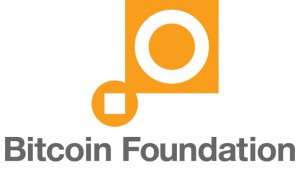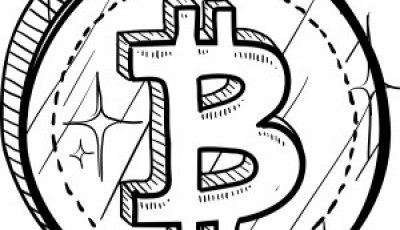Understanding the Brock Pierce Bitcoin Foundation Controversy
 Yesterday, Andreas Antonopoulis tweeted the following as his way of divorcing himself from the Bitcoin Foundation entirely, finalizing his resignation from its board:
Yesterday, Andreas Antonopoulis tweeted the following as his way of divorcing himself from the Bitcoin Foundation entirely, finalizing his resignation from its board:
“I can no longer have even the smallest association with the Bitcoin Foundation, because of the complete lack of transparency.”
This is just the latest high-profile departure from the Bitcoin Foundation in recent months. More than ten Foundation members have departed since the election of former child star and entrepreneur Brock Pierce as director in May. One departing member, Patrick Alexander, posted:
“The track record of prominent Bitcoin Foundation members has been abysmal,[…] I no longer want to be associated with these people.”
The Bitcoin Foundation, a nonprofit that lobbies for Bitcoin acceptance and funds much of the core development work on the protocol, has seen its share of controversy over its lifespan, but the election of Pierce in particular has spawned an exodus of many of the most respected members of the group, casting doubt on its future and causing many in the community to call for a more open, crowd-managed replacement for the organization. The elections were called in the first place in an effort to replace two lost members, Mt. Gox-head Mark Karpeles, and Silk Road implicated Charlie Shrem.
So why the controversy? The objections to Pierce fall into basically two camps: Sex-crime allegations from his past, and his support of RealCoin and other centralized or semi-centralized virtual currencies.
Allegations of Pedophilia
After his retirement from child acting (high point: a starring role in “The Mighty Ducks”), then eighteen-year-old Brock Pierce became involved with a company called DEN, the “Digital Entertainment Network,” a pre-YouTube company that intended to cash in on online video and had the ambitious goal of replacing television entirely. The idea was simple: Raise investor capital (free flowing in the early 2000’s), and produce a series of short-form web video series, starring and targeted at tech-savvy young people, and distribute them online for free. Pierce’s role as protege of the co-founder, Marc Collins-Rector, in the company was to provide a web-generation viewpoint on the content and direction of the company.
Those who remember the dot-com bust might remember DEN as one of the darkest dot-com startup failures. Shortly before its planned IPO, the company became the subject of several lawsuits from young child actors, alleging that they had been given drugs and raped by Collins-Rector, then 40, and naming others in the company, including Pierce, as secondary defendants. The company was bankrupt in a matter of months, and Collins-Rector and Pierce both fled the country to Europe. In Europe, in the aftermath of the collapse, Pierce became involved with online gaming, and eventually launched his own company, IGE, which trafficked in online currencies for profit, and made him most of his current fortune.
It’s not clear to what degree Pierce was actually involved in the crimes that took place at DEN. He was young at the time, and his version of the story, told to WIRED in an interview in 2008, seems reasonable enough. However, there’s enough doubt that many in the Bitcoin community feel that his presence makes both the Foundation and Bitcoin as a whole less reputable, inviting unsavory connections to Bitcoin-funded crime and human trafficking.
RealCoin and Conflicts of Interest
One of Brock Pierce’s pet projects, announced a few days ago, is RealCoin, a MasterCoin layer that rests on top of the Bitcoin blockchain and provides a cryptocurrency backed by an auditable reserve of US dollars. Pierce is the founder and partial owner of the company RealCoin, which will exchange fiat for Realcoin and vice-versa. The goal is to provide a cryptocurrency that is stabler than Bitcoin, by anchoring its price to USD. Reeve Collins, RealCoin’s CEO, described it this way:
“[W]e are digitizing the dollar and giving that digital dollar access to the bitcoin blockchain.”
RealCoin is seeking banking partners around the world in an effort to make it easy to exchange RealCoin for USD and vice-versa.
It’s not difficult to see why Pierce’s involvement in RealCoin might draw controversy. RealCoin is very much in opposition to some of the foundational principles of Bitcoin — specifically, RealCoin is centralized, requires trust, and encourages use of fiat currencies under the control of central banks, rather than helping people move away from them. Furthermore, the problems that RealCoin is designed to solve are largely temporary issues created by Bitcoin’s newness and the current population of incautious speculators. Over time, Bitcoin will resolve many of these issues on its own. For now, though, a widely successful RealCoin might harm the growth of Bitcoin and other truly independent cryptocurrencies, and thus represents a significant conflict of interest on the part of Pierce. It is this perceived conflict of interest that is driving much of the most recent wave of controversy surrounding him.
Regardless of your opinion on these issues, Pierce’s presence is clearly driving talent and credibility away from the Bitcoin Foundation, and it seems likely that, on its current course, the organization will continue to be relevant (or even survive) for too long into the future. A replacement is in order and I, for one, am excited to see what the community comes up with.














well done anton… the foundation is a waste of space, and a shit stain on the face of bitcoin. Coindesk support this screwed up organisation which shows thier moral awareness and allegence. Death to coindesk & BF
Pretty neat how you use this forum to express personal detest to the Board, and use this space to present irrelevant points such as “I for one am all for it”, thats hypocritical of a community member, and in itself aguable against the vision of bitcoin, which is let the math do the work. Sidebar your opinions and provide the facts. Brock brings Vision and a shot in the arm this project needs as a whole. The talent, if it believes in the project, will come back or post opensource ideas,if they truly “get it”. this is bigger then a pissing contest or a decades old frivilous facts irrelevant to anyone with a brain